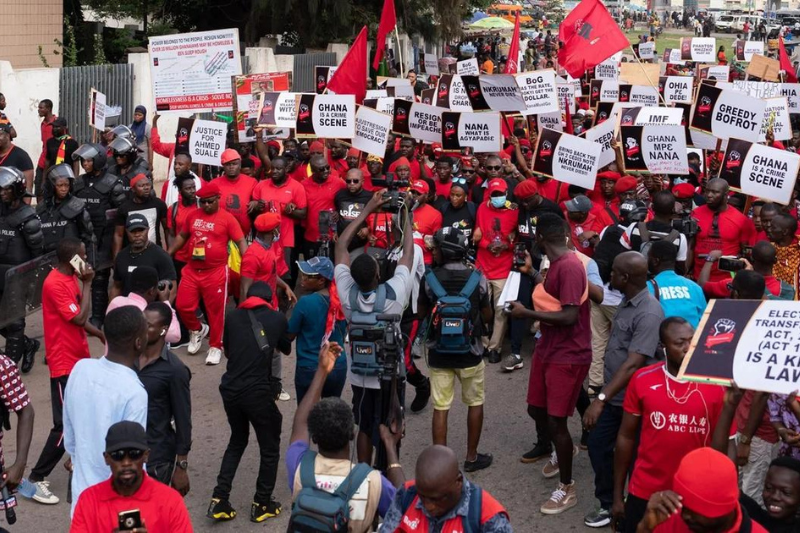Last updated on September 25th, 2023 at 08:38 am
The recent three-day demonstrations in Ghana, organized under the hashtag #OccupyJulorbiHouse, have highlighted the anger and discontent among the people regarding the country’s political and economic situation. In addition to calling for a better standard of living, stable economic conditions, and responsible leadership, the demonstrators also demanded change and reform.
Background
The” Fix the Country” crusade, which first gained traction in 2021, served as the motivation for the demonstrations, which gathered steam and culminated in the three-day march that ended on September 23, 2023. With signs expressing their desire for a better Ghana, Ghanaian citizens crowded the roads after getting disenchanted by growing living costs and what they saw to be moral deterioration among the leadership. My genuine longing for necessities and hope for a better future catalyzed the protests.
Economic Grievances
Deep-seated economic issues are at the basis of the protests. The issues Ghana’s economy has encountered have hurt the level of living for many Ghanaians. Ghana is saddled with a significant debt to the IMF. The people have been more vocal about the need for economic reforms as a result of high unemployment rates, surging prices for basic goods, and rising cost of living. The protesters demanded the implementation of laws that prioritize their fundamental requirements for clothing, food, and water while also enabling them to take care of their children.
Keep Reading
Political Accountability
Concurrently with the economic problems, the protests revealed a rising dissatisfaction with the perceived moral decline and absence of political accountability among the leadership. People expressed a wish for a political energy that truly represents their interests and does not make them feel like ineffective “voting machines.” The cry for change included a demand for their elected leaders to act with greater accountability and openness.
Government Reaction
Both the government and law enforcement had differing reactions. The police used aggressively at first, detaining around 50 protesters, including journalists. The demonstrators were morenergizeded and tensions only increased as a result of this overbearing strategy. The government’s inability to state in response to the demonstration revealed a lack of interest in and comprehension of the issues facing the populace.
Future Implications
Although initially motivated by economic complaints, the demonstration grew to include a larger call for political reform and responsibility. This movement is significant because it can alter Ghana’s socio-political climate. To address their issues and promote a sense of inclusion and participatory governance, the government must listen to the voices of the people and engage in discourse.
The latest demonstrations in Ghana mark a turning point in the sociopolitical history of the nation. Economic troubles and a lack of confidence in their government have joined citizens in calling for change. The government’s response and following actions will determine the course of the country, emphasizing how urgent it is to address economic issues and promote a political system that is open and responsible and that reflects the aspirations of the Ghanaian people.

